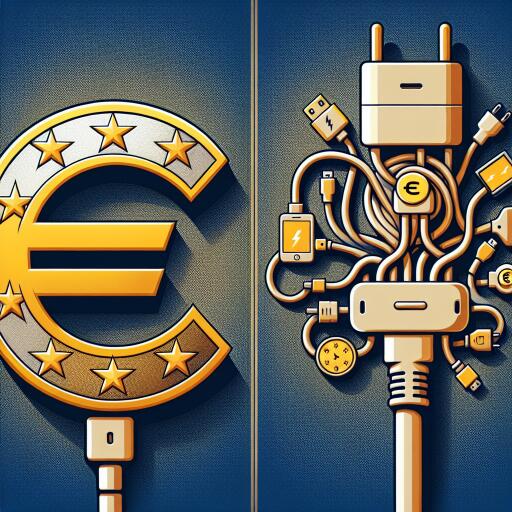One Currency, One Charger: How the EU Changed Life for Consumers
The introduction of the euro and advancements in consumer technology regulations have significantly altered the daily lives of people across the European Union. With the EU-wide parliament elections approaching on June 9, it’s an opportune moment to reflect on these transformative changes.
One Currency
Two decades ago, the transition from national currencies like the Deutsche Mark, Franc, Italian Lira, and Peseta to the euro commenced. Now, the euro serves as the sole legal tender in 20 of the 27 EU member states, facilitating fee-free money transfers across the eurozone and eliminating concerns over foreign exchange rates for travelers.
In Germany, Europe’s largest economy, the euro has secured its place, despite initial fears it would lead to inflation. The term “teuro,” a pun combining “euro” with the German word for expensive, “teuer”, reflects these early concerns. However, the euro has stood the test of time, especially during the debt crises of the 2010s when EU countries supported each other financially. A late 2023 European Commission survey revealed a striking approval rate, with 79 percent of eurozone residents viewing the euro positively for the EU.
Free Roaming
Since 2017, the abolition of roaming charges within the EU has dramatically simplified communication for residents traveling or living across borders. Kevin Eon, a French national working in the Netherlands, highlights the convenience of retaining his French phone number without incurring additional charges, emphasizing the significant time and cost savings this policy offers.
One Phone Charger
The upcoming enforcement of a unified charging standard, requiring all portable electronic devices sold in the EU to feature a USB-C port, marks another significant advancement. This regulation streamlines charging for devices like phones, tablets, and speakers. Despite initial resistance from certain manufacturers, such as Apple, the transition towards USB-C is now largely accepted and will be fully implemented later this year.
Flight Compensation
The EU has also strengthened the rights of air travelers, establishing rules for compensation in cases of long delays or cancellations. Affected passengers are entitled to compensation ranging from 250 to 600 euros, in addition to necessary accommodations. While airlines can claim “extraordinary circumstances” to avoid payouts, this policy ensures a level of accountability and protection for consumers.
Cookie Consent
The introduction of the General Data Protection Regulation (GDPR) in 2018 revolutionized online privacy, requiring websites to obtain user consent before tracking their activity with cookies. This regulation, aimed at enhancing personal data protection, has led to a noticeable increase in consent pop-ups, evoking mixed feelings among users like Marta Riboni, a 27-year-old Italian who finds them alternately bothersome and negligible.
In conclusion, the European Union’s initiatives in currency standardization, telecommunications, tech regulation, consumer rights, and online privacy have collectively enhanced the convenience and security of daily life for its citizens. As the EU continues to evolve, these changes underscore its commitment to fostering a unified and consumer-friendly environment.
